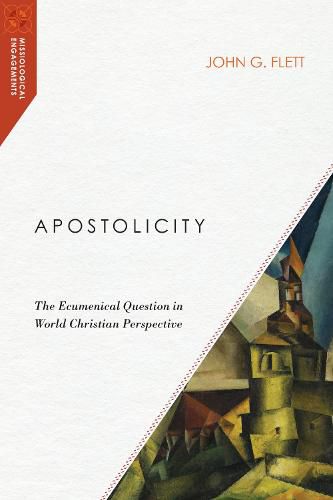Readings Newsletter
Become a Readings Member to make your shopping experience even easier.
Sign in or sign up for free!
You’re not far away from qualifying for FREE standard shipping within Australia
You’ve qualified for FREE standard shipping within Australia
The cart is loading…






This title is printed to order. This book may have been self-published. If so, we cannot guarantee the quality of the content. In the main most books will have gone through the editing process however some may not. We therefore suggest that you be aware of this before ordering this book. If in doubt check either the author or publisher’s details as we are unable to accept any returns unless they are faulty. Please contact us if you have any questions.
What constitutes the unity of the church over time and across cultures? Can our account of the church’s apostolic faith embrace the cultural diversity of world Christianity? The ecumenical movement that began in the twentieth century posed the problem of the church’s apostolicity in profound new ways. In the attempt to find unity in the midst of the Protestant-Catholic schism, participants in this movement defined the church as a distinct culture-complete with its own structures, rituals, architecture and music. Apostolicity became a matter of cultivating the church’s own (Western) culture. At the same time it became disconnected from mission, and more importantly, from the diverse reality of world Christianity. In this pioneering study, John Flett assesses the state of the conversation about the apostolic nature of the church. He contends that the pursuit of ecumenical unity has come at the expense of dealing responsibly with crosscultural difference. By looking out to the church beyond the West and back to the New Testament, Flett presents a bold account of an apostolicity that embraces plurality. Missiological Engagements charts interdisciplinary and innovative trajectories in the history, theology, and practice of Christian mission, featuring contributions by leading thinkers from both the Euro-American West and the majority world whose missiological scholarship bridges church, academy, and society.
$9.00 standard shipping within Australia
FREE standard shipping within Australia for orders over $100.00
Express & International shipping calculated at checkout
This title is printed to order. This book may have been self-published. If so, we cannot guarantee the quality of the content. In the main most books will have gone through the editing process however some may not. We therefore suggest that you be aware of this before ordering this book. If in doubt check either the author or publisher’s details as we are unable to accept any returns unless they are faulty. Please contact us if you have any questions.
What constitutes the unity of the church over time and across cultures? Can our account of the church’s apostolic faith embrace the cultural diversity of world Christianity? The ecumenical movement that began in the twentieth century posed the problem of the church’s apostolicity in profound new ways. In the attempt to find unity in the midst of the Protestant-Catholic schism, participants in this movement defined the church as a distinct culture-complete with its own structures, rituals, architecture and music. Apostolicity became a matter of cultivating the church’s own (Western) culture. At the same time it became disconnected from mission, and more importantly, from the diverse reality of world Christianity. In this pioneering study, John Flett assesses the state of the conversation about the apostolic nature of the church. He contends that the pursuit of ecumenical unity has come at the expense of dealing responsibly with crosscultural difference. By looking out to the church beyond the West and back to the New Testament, Flett presents a bold account of an apostolicity that embraces plurality. Missiological Engagements charts interdisciplinary and innovative trajectories in the history, theology, and practice of Christian mission, featuring contributions by leading thinkers from both the Euro-American West and the majority world whose missiological scholarship bridges church, academy, and society.